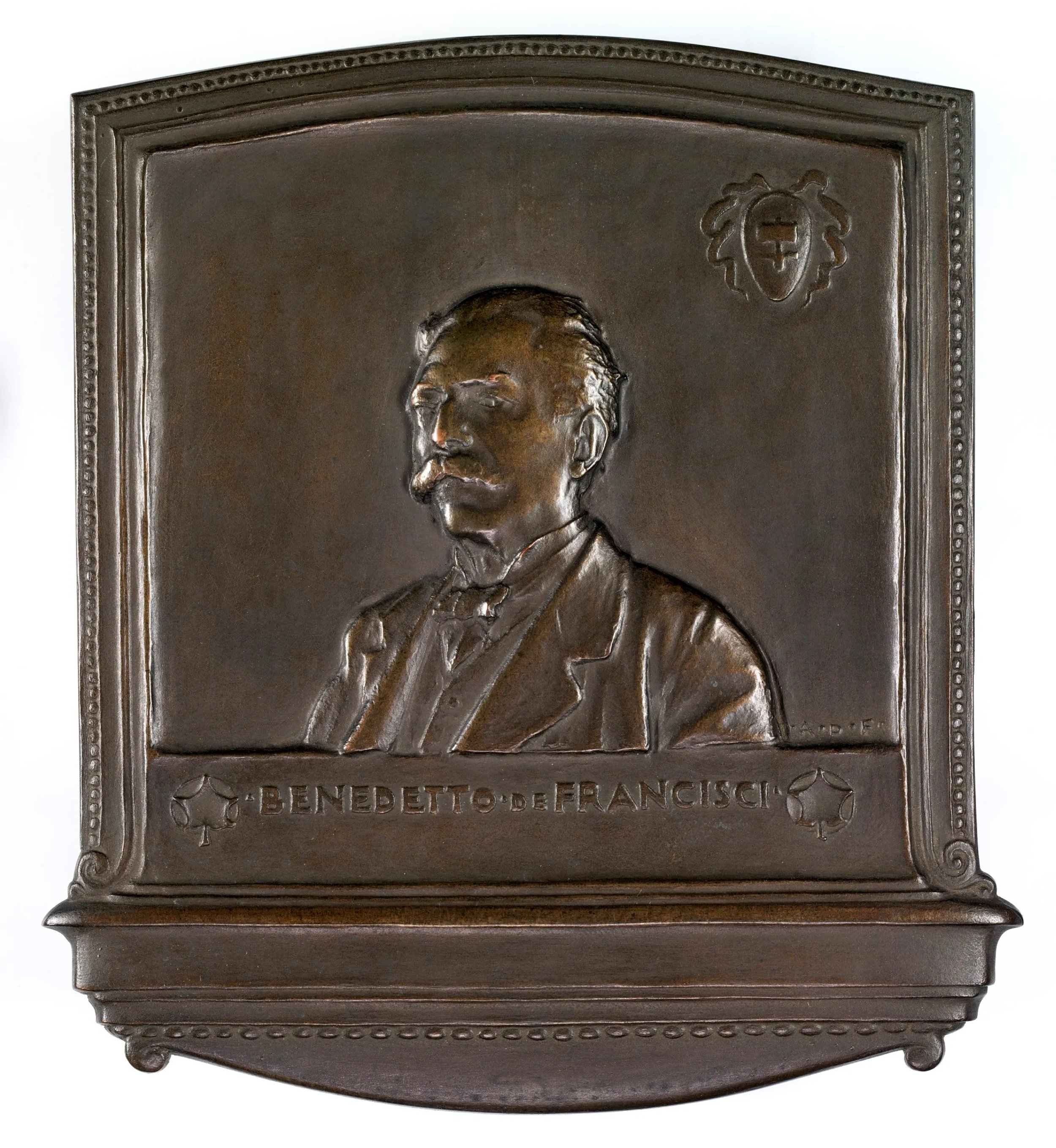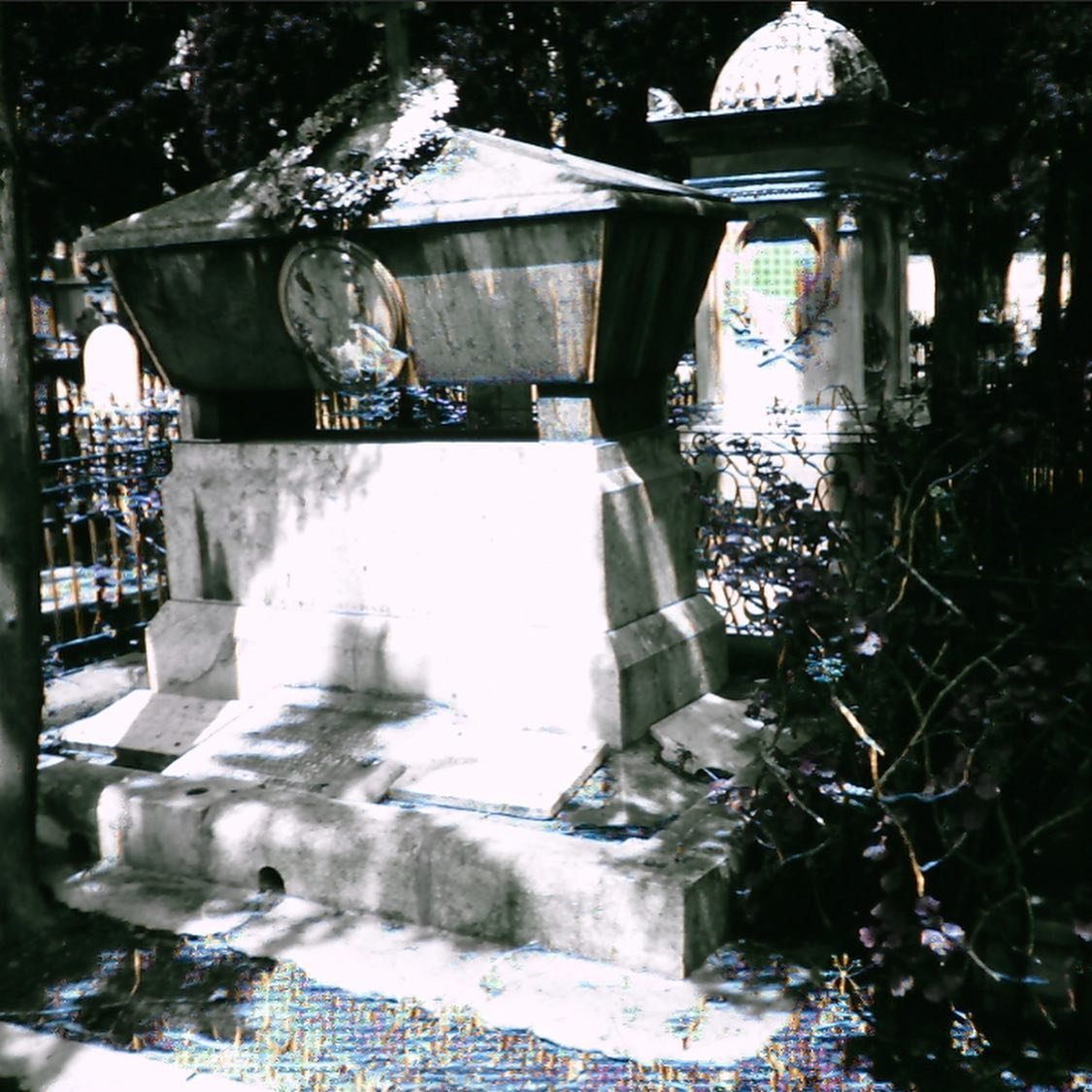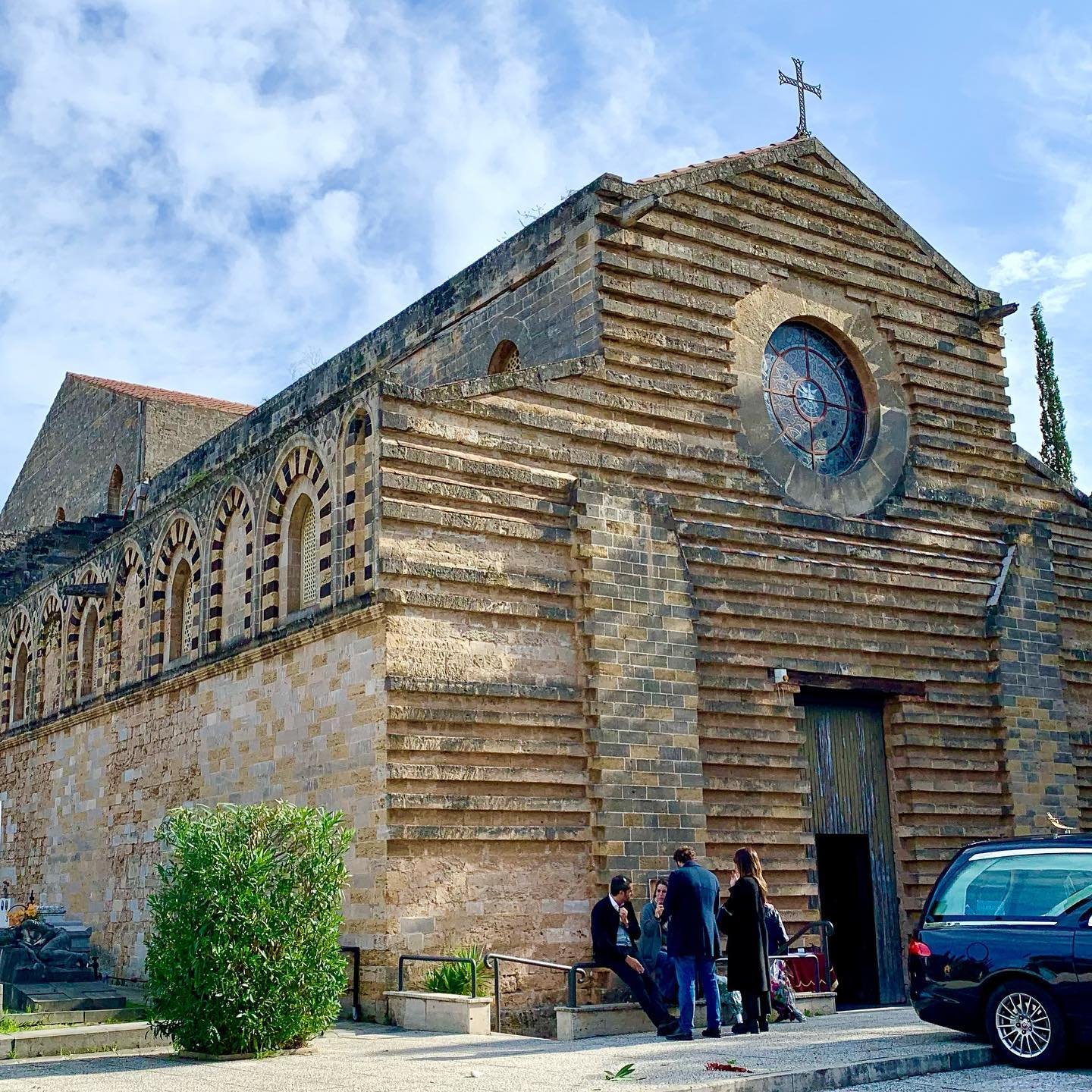
Cimitero di Sant’Orsola
and the Camposanto di Spirito Santo, the War of the Sicilian Vespers, and my Greet Greet Grandfather
My Great Great Grandfather Benedetto de Francisci’s grave from the photographed by my grandparents in the 1980’s.
I took a taxi to an old cemetery on the edge of town that I was certain I would never find on foot. It’s the cemetery at Camposanto di Spirito Santo where my Great Great Grandfather Benedetto de Francisci (1842-1919) is buried. I asked the cab driver if I could have his card so I could order a taxi later when I was finished. He pointed to an area on the right by the various cemetery florists and said, through our wounded communication, that I could find a taxi there later.
I spent a few hours in the cemetery going up and down rows looking for my ancestor, the last one on my paternal grandmother’s side to stay behind in Palermo. All I have to go by is a scanned copy of a glossy print photo from the 1980s that my grandparents took. I wanted to get a good detailed photograph for my mom who compiles our genealogy. Alas I couldn’t find it and finally gave up.
When I exited the cemetery my taxi driver was waiting for me, I had misunderstood! He waited the whole time!
The spark that was the catalyst for the the “War of the Sicilian Vespers” started here on the steps of Chiesa del Santo Spirito in 1282
Something else interesting about this cemetery — there is a church inside where the War of Sicilian Vespers ignited on 30 March 1282. I realize every time I say anything about Sicily I begin by talking about a different group of people who ruled this island. I mentioned the Arabs, the Normans, the Spanish. Well this time it was the French and their rule was the most exploitative and nasty, and at this church on that night a drunk French soldier named Drouet tried rape a woman. Her husband came to her defense stabbing Drouet and then other soldiers tried to arrest the man but the Sicilian people had had enough and an uprising erupted, suspected Frenchmen would be dragged from their houses and taverns wherever they could be found and asked to say the word "𝘤𝘪𝘤𝘪𝘳𝘪" which is Sicilian for “chick pea” a word no Frenchman could accurately pronounce, and if they couldn’t they were slaughtered on the spot. The massacre lasted for only six weeks, but by its conclusion, they had ousted the French King Charles of Anjou and installed Spain's Peter III as their leader.
Of course that led to other problems later on. Such is the way Sicilian history is told.
NOTE: The top image is of a bronze medallion made by my Great Uncle Anthony de Francisci, Benedetto’s son. Anthony di Francisci was a prolific sculptor with major works including the US Peace Dollar that ran from 1921 to 1935. He learned his trade by his father and made this medallion in his honor. My family donated it to the Smithsonian Institute.


